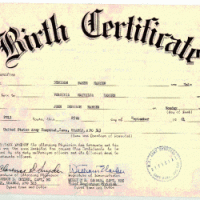
Cliff Hastings and Ron Hoppe-Hastings sailed through the vows at their 2011 civil union ceremony, until they got to the part about entering into fatherhood together.
“We cried our eyes out,” says Hastings, 41. The topic of parenthood was emotional for them, he says — they both really wanted kids — but there was more to it than that: “We didn’t know what the options were. We both thought that having kids might be more of a pipe dream than an actual reality.”
Today, Hastings and Hoppe-Hastings are the proud fathers of 11-month-old twin girls conceived with the aid of an egg donor and grown in the womb of a surrogate, a woman who carries a baby (or babies) for other people, often heterosexuals with fertility issues.
No one tracks how many gay men are having babies via surrogates, but observers say that the numbers are growing.
“I’ve definitely seen an increase,” says Dr. Eve Feinberg, an assistant professor of obstetrics and gynecology at Northwestern University’s Feinberg School of Medicine.
“As gay marriage has become legal, I think it’s become much more socially acceptable for men to pursue fertility treatments and have babies.”
Five years ago, surrogacy for gay men was “unheard of” at Fertility Centers of Illinois, Feinberg says. When she left the practice in July, 20 to 30 male couples were pursuing surrogacy in a given year.
An informal survey of fertility clinics in more than 10 cities conducted for the Tribune by FertilityIQ (www.fertilityiq.com), a website where patients evaluate their fertility doctors, found that 10 to 20 percent of donor eggs are going to gay men having babies via surrogacy, and in a lot of places the numbers are up 50 percent from five years ago.
Cost remains a big barrier, according to FertilityIQ co-founder Jake Anderson, with costs for gay men, who typically need a surrogate and an egg donor, coming in at about $100,000 to $200,000. But with employers increasingly paying for fertility treatments for heterosexual couples, and lesbians pushing for insurance benefits that include them, gay men will likely gain more insurance coverage as well, according to Anderson.
“We think this is going to be pretty darn commonplace,” he says. “Maybe not tomorrow, but five years from now, 10 years from now, everybody will know a few people who have built their families through gay surrogacy.”
Hastings and Hoppe-Hastings, who are married and live outside Champaign, Ill., thought that they would adopt their children. But then, about three years ago, one of Hastings’ high school classmates posted pictures on Facebook. She was pregnant, and when Hastings congratulated her, she explained that she was a surrogate, carrying a baby for a heterosexual couple. The friend got Hastings in touch with the agency that had arranged her surrogacy, Family Source Consultants in Chicago.
by Nara Schoenburg, Chicagotribune.com, November 23, 2016
Click here to read the entire article.
The post Gay men increasingly turn to surrogates to have babies appeared first on Time For Families.
Source: Time for Families











